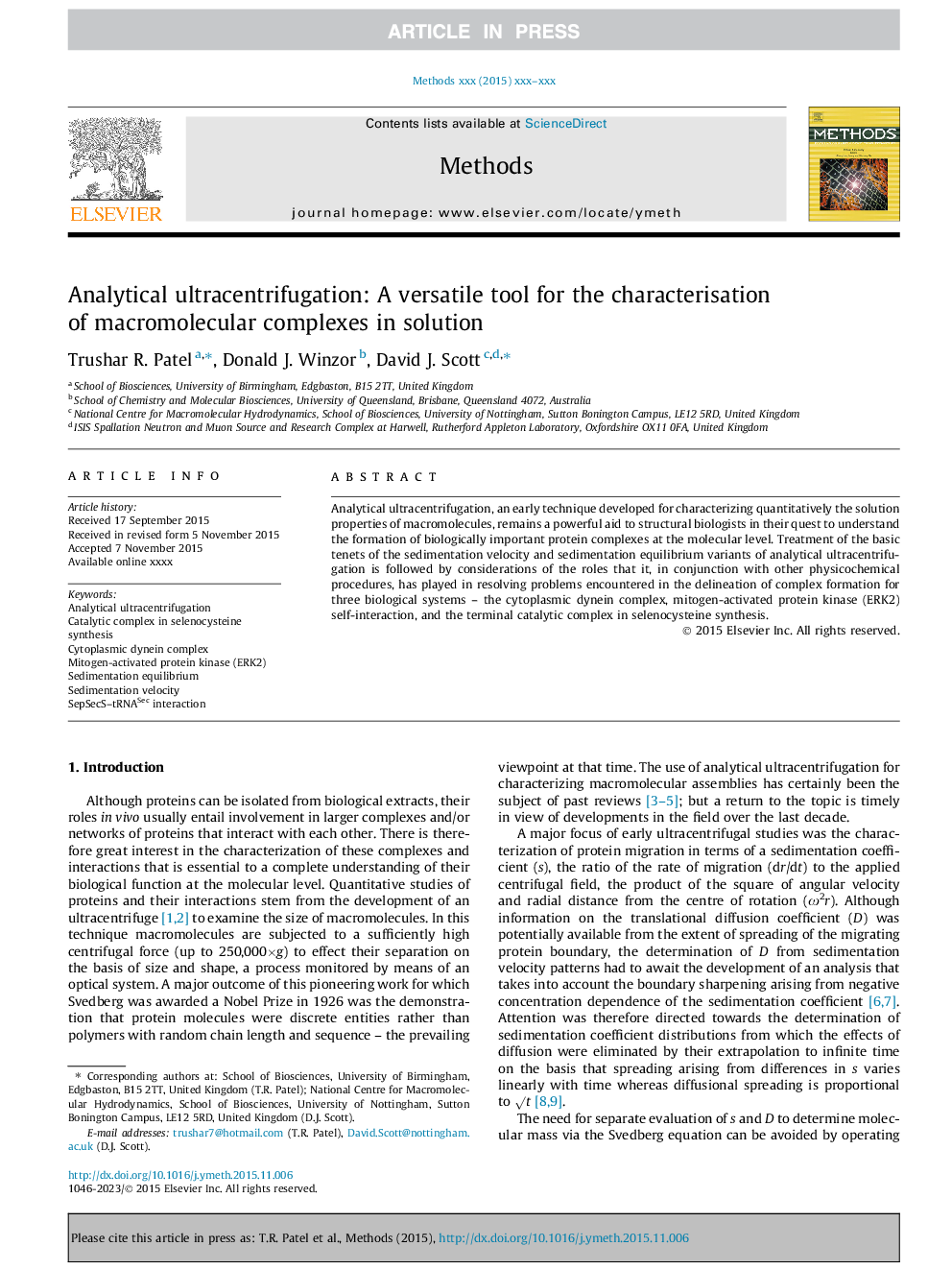| Article ID | Journal | Published Year | Pages | File Type |
|---|---|---|---|---|
| 8340395 | Methods | 2016 | 7 Pages |
Abstract
Analytical ultracentrifugation, an early technique developed for characterizing quantitatively the solution properties of macromolecules, remains a powerful aid to structural biologists in their quest to understand the formation of biologically important protein complexes at the molecular level. Treatment of the basic tenets of the sedimentation velocity and sedimentation equilibrium variants of analytical ultracentrifugation is followed by considerations of the roles that it, in conjunction with other physicochemical procedures, has played in resolving problems encountered in the delineation of complex formation for three biological systems - the cytoplasmic dynein complex, mitogen-activated protein kinase (ERK2) self-interaction, and the terminal catalytic complex in selenocysteine synthesis.
Related Topics
Life Sciences
Biochemistry, Genetics and Molecular Biology
Biochemistry
Authors
Trushar R. Patel, Donald J. Winzor, David J. Scott,
